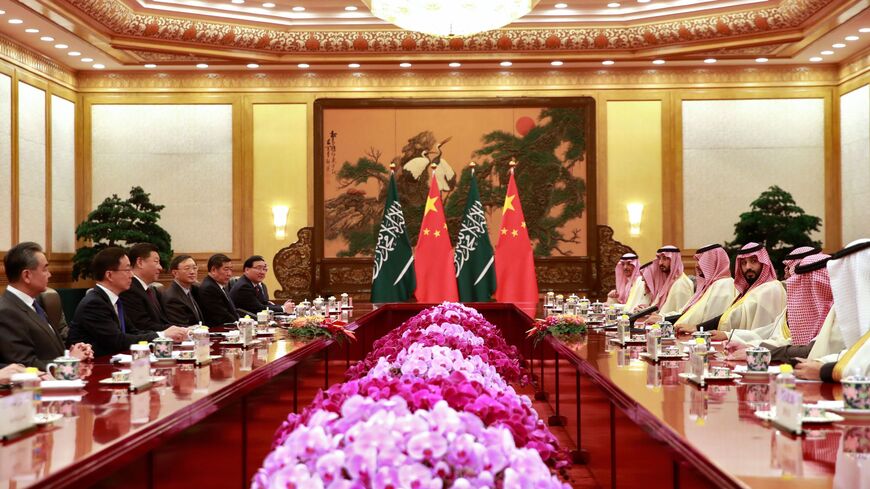Saudi Arabia and China signed more than 40 agreements by the end of Xi Jinping's landmark three-day visit to the kingdom Friday.
On Friday, Saudi Aramco and China’s Shandong Energy Group signed a memorandum of understanding to explore opportunities to collaborate on oil refining and petrochemical opportunities in the People’s Republic. The agreement also specified they would seek ways to work together on renewable energy, hydrogen energy and carbon capture, Aramco said in a press release.
The two countries also signed a strategic partnership on the digital economy. The deal relates to artificial intelligence, quantum computing, robots and more, the official Saudi Press Agency reported Friday.
Why it matters: Chinese President Xi Jinping arrived in Saudi Arabia on Wednesday for a series of summits with Saudi, Arab and Gulf leaders. Representatives from both countries have signed numerous agreements since he arrived. The following is a summary of some of those deals:
- Saudi energy company ACWA Power signed strategic agreements on Thursday with nine unspecified Chinese companies. The agreements pertain to renewable energy projects in Saudi Arabia and member states of China’s Belt and Road infrastructure initiative, ACWA said in a statement.
- Also on Thursday, a variety of Chinese and Saudi companies signed 34 investment agreements during a meeting. The Chinese tech giant Huawei, the Chinese driverless car firm AutoX and others were among those who inked agreements. The deals covered green technology, cloud services, information technology and a variety of other sectors.
- Riyadh and Beijing also signed a comprehensive strategic partnership agreement on Thursday, as well as an unspecified number of other bilateral agreements and memorandums of understanding, according to the Saudi Foreign Ministry.
- Following Xi’s arrival Wednesday, the King Abdullah University of Science and Technology and China’s Sinovation Ventures signed an MoU on artificial intelligence. Saudi Arabia’s National Center for Vegetation Cover Development and the Chinese company Elion also signed an agreement on afforestation the same day.
Saudi Arabia issued a statement at the end of its bilateral summit with China. The statement notably referenced Saudi Arabia’s support for the “one China principle” — a reference to Taiwan.
Know more: China’s summits with Gulf and Arab states began Friday following the Saudi summit. The Gulf Cooperation Council released a statement expressing its desire to deepen cooperation with China regarding energy, trade, investment, finance, industry, advanced technology, space and health.
The wider Arab summit was attended by Jordan’s King Abdullah II, Iraqi Prime Minister Mohammed Shia al-Sudani, Egyptian President Abdel Fattah al-Sisi, Tunisian President Kais Saied, Lebanese Prime Minister Najib Mikati, Algerian Prime Minister Ayman Benabderrahmane, Chairman of the Libyan Presidential Council Mohamed Younis Al-Manfe, Moroccan Prime Minister Aziz Akhannouch, Mauritanian President Mohamed Ould Cheikh El Ghazouani, Chairman of the Yemeni Presidential Leadership Council Rashad Muhammad Al-Alimi, de facto Sudanese leader Lt. Gen. Abdel Fattah Al-Burhan and Palestinian President Mahmoud Abbas, according to the Saudi Press Agency.
Al-Monitor was unable to confirm whether the Syrian government sent a representative to the summit.
Xi said during the China-Gulf summit that he wants Gulf states to use China’s currency the yuan for energy deals, as opposed to the dollar. Saudi Arabia is already considering pricing oil sales to China in yuan.







